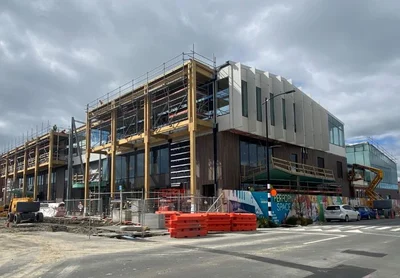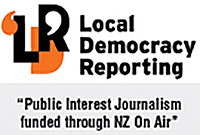Unfinished projects cause carry-over budget to double

They wanted to do better at delivery this year.
What they delivered was double the budget for unfinished work.
The Ashburton District Council has signed off $38.9 million in carryovers from 2022-23, more than double the $14.6m it carried into the last financial year.
That’s despite chief executive Hamish Riach saying in 2022 that delivery needed to be better.
The carry-over money is from work that had been budgeted for, but it was either never started of not completed in the 2022/23 financial year.
“The bulk of the carryover budget is attributed to capital projects underway or nearing completion,” Riach said.
As well as Te Whare Whakatere, Ashburton Library and Civic Centre, there is also major water infrastructure, like the recently completed Methven water treatment plant, the under-construction Mt Somers Water Treatment Plant, and drinking water and wastewater pipe renewals under way in Ashburton, Riach said.
Those projects account for around $22m (60%) of the carryovers for capital projects, he said.
“Carry-over projects do put additional pressure on the delivery of projects planned in the current year and finding the capacity to deliver, despite challenges outside of our control, is a concern - one that is generally faced every year and by all councils across the country,” he said.
It’s a situation of “ambitions and optimism to get work done colliding with the reality of how complicated and resource-hungry some work is”, Riach said.
“We would like to reduce carry-over budgets, and across local government in New Zealand, there is a balancing act between council and community expectations for delivery in the desired timeframes, and the resources and capacity available.”
The long-term plan will provide an opportunity to examine how to reduce carryovers, he said.
“Setting achievable targets will be a key focus.”
It will also require flexibility depending on the result of the upcoming election and the direction of legislative change, Riach said.
Councillor Richard Wilson said they need to “reassess what is achievable” in future planning.
“Perhaps we are better to do everything well than trying to do too much.”
Mayor Neil Brown said when it came to setting budgets early next year, there would need to be an analysis of potential carryovers.
"[Councillors] need to be mindful that we are going to spend the money we budget and not be carrying it forward”.
The target for the carry-over figure would need to be “considerably less” at the end of this financial year, councillor Russell Ellis said.
By Jonathan Leask

